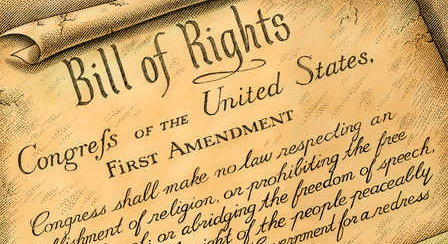Free Speech Statement
In the United States all people have the right of free speech and assembly guaranteed by the First Amendment of the Constitution. The First Amendment states “Congress shall make no law respecting an establishment of religion, or prohibiting the free exercise thereof; or abridging the freedom of speech, or of the press; or the right of the people peaceably to assemble, and to petition the Government for a redress of grievances.”
As such, freedom of thought, inquiry, speech and lawful assembly are fundamental rights of all persons. These rights include the freedom to express opinions; to hear, express, debate and support various views, no matter how unpopular; and to voice criticism. Free speech is uniquely important to the University as it brings about a free interchange of ideas integral to the University’s fundamental mission of teaching, research and public service.
Protests and civil disobedience have played an historic role on the University campuses and in bringing important and beneficial changes within society. However, civil disobedience is not protected speech under the Constitution. The Constitution does not guarantee any right to engage in civil disobedience – which, by its very definition, involves the violation of laws or regulations – without incurring consequences. Civil disobedience may have a negative effect on the protected interests of others and may interfere with University business, threaten public safety or University assets in ways that require the University to act to protect those interests.
It is the duty of all Police Department personnel to defend the University community’s rights to pursue their normal activities. In addition, all sworn personnel must carefully balance the First Amendment rights and other civil liberties of individuals with the interventions required to protect public safety and property. The sometimes-competing goals of maintaining order while protecting the freedoms of speech and assembly stand as one of law enforcement’s greatest challenges.
Sworn Personnel may use objectively reasonable force per policy and law in order to accomplish these goals. All sworn personnel must not be affected by the content of the opinions being expressed nor by the race, gender, sexual orientation, physical disabilities, appearances, religion, or political affiliation of anyone exercising their lawful First Amendment rights. They must have the integrity to not let personal, political, or religious views affect how they perform their duties.


